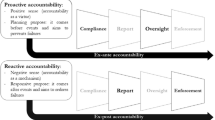Abstract
Since Turing proposed the first test of intelligence, several modifications have been proposed with the aim of making Turing’s proposal more realistic and applicable in the search for artificial intelligence. In the modern context, it turns out that some of these definitions of intelligence and the corresponding tests merely measure computational power. Furthermore, in the framework of the original Turing test, for a system to prove itself to be intelligent, a certain amount of deceit is implicitly required which can have serious security implications for future human societies. In this article, we propose a unified framework for developing intelligence tests which takes care of important ethical and practical issues. Our proposed framework has several important consequences. Firstly, it results in the suggestion that it is not possible to construct a single, context independent, intelligence test. Secondly, any measure of intelligence must have access to the process by which a problem is solved by the system under consideration and not merely the final solution. Finally, it requires an intelligent agent to be evolutionary in nature with the flexibility to explore new algorithms on its own.
Similar content being viewed by others
References
Allcott H, Gentzkow M (2017) Social media and fake news in the 2016 elections. NBER working paper 23089
Arleback JB, Bergsten C (2013) On the use of realistic fermi problems in introducing mathematical modelling in upper secondary mathematics. In: Lesh R, Galbraith P, Haines C, Hurford A (eds) Modeling students’ mathematical modeling competencies. International perspectives on the teaching and learning of mathematical modelling. Springer, Dordrecht
Bringsjord S, Bello P, Ferrucci D (2001) Creativity, the Turing test, and the (Better) Lovelace test. Mind Mach 11:3
Burgess A (2013) A clockwork orange. Penguin Books, London
Calude CS, Jurgensen H (2005) Is complexity a source of incompletenesss? Adv Appl Math 35:1
Chaitin GJ (1982) Godel’s theorem and information. Int J Theor Phys 21:941
Cohen PJ (2008) Set theory and the continuum hypothesis. Dover, New York
Conroy NJ, Rubin VL, Chen Y (2015) Automatic deception detection: methods for finding fake news. Proc Assoc Inf Sci Technol 52:1
Gardner H (2011) Frames of mind: the theory of multiple intelligences. Basic Books, New York
Godel K (1940) The consistency of the continuum-hypothesis. Princeton University Press, New Jersey
Halmos PR (1973) The legend of John von Neumann. Am Math Mon 80:382–394
Legg S, Hutter M (2007) Universal intelligence: a definition of machine intelligence. Mind Mach 17:391
Levesque HJ (2014) On our best behaviour. Artif Intell 212:27
Levesque HJ, Davis E and Morgenstern L (2011) The Winograd schema challenge. In: AAAI Spring symposium: logical formalizations of commonsense reasoning
Luger GF, Chakrabarti C (2017) From Alan Turing to modern AI: practical solutions and an implicit epistemic stance. AI Soc 32:321
Markowitz DM, Hancock JT (2014) Linguistic traces of a scientific fraud: the case of diederik stapel. PLoS One 9:e105937
Oppy G, Dowe D (2016) The Turing test, the Stanford encyclopedia of philosophy. In: Zalta EN (ed). https://plato.stanford.edu/archives/spr2016/entries/turing-test/. Accessed 15 Aug 2017
Silver D et al (2016) Mastering the game of Go with deep neural networks and tree search. Nature 529:484
Tesla N (1937) A machine to end war, PBS.org. In: Viereck GS (ed). https://www.pbs.org/tesla/res/res_art11.html. Accessed 10 Sept 2017
Turing A (1950) Computing machinery and intelligence. Mind 59:433
Warwick K, Shah H (2016a) Can machines think? A report on Turing test experiments at the Royal Society. J Expt Theo AI 28:989
Warwick K, Shah H (2016b) The importance of a human viewpoint on computer natural language capabilities: a Turing test perspective. AI Soc 31:207
Warwick K, Shah H (2016c) Effects of lying in practical Turing tests. AI Soc 31:5
Wu Y et al (2016) Google’s neural machine translation system: bridging the gap between human and machine translation. arXiv:1609.08144
Warwick K, Shah H (2016d) Taking the fifth amendment in Turing’s imitation game. J Expt Theor AI 29:1
Acknowledgements
The authors thank the anonymous reviewer for very useful comments. A part of this work was done, while the authors were at the Indian Institute of Technology (IIT) Delhi, India.
Author information
Authors and Affiliations
Corresponding author
Rights and permissions
About this article
Cite this article
Srinivasan, B., Shah, K. Towards a unified framework for developing ethical and practical Turing tests. AI & Soc 34, 145–152 (2019). https://doi.org/10.1007/s00146-017-0763-y
Received:
Accepted:
Published:
Issue Date:
DOI: https://doi.org/10.1007/s00146-017-0763-y



